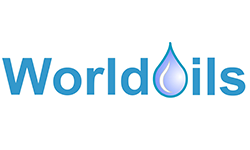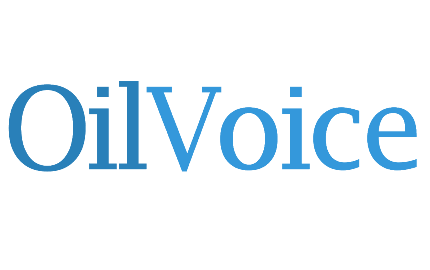Metallurgy for Non - Metallurgists
Metal and its alloys has changed significantly in recent years, This training course will provide an integrated practical overview of metals and alloys and relating it to the mechanical and physical characteristics of metals; starting from materials testing and physical/mechanical properties, through corrosion properties and strength/deformation principals, and to ferrous and non-ferrous alloys and heat treatment. The course will then include ferrous alloys (plain and alloy steels, Stainless steels and cast irons) and non-ferrous alloys (for corrosion and high temperature applications, such as nickel, cobalt and titanium based alloys).
The nature of hot and cold working of metals and heat treatment, including annealing, normalizing, tempering and case hardening will be explained. The fundamentals of corrosion and corrosion prevention will also be presented in practical terms with examples to illustrate the key points.
The behavior of metals under various loading conditions (static, dynamic, fracture) will be presented and related to design methodology and procedures; rules of thumb, standards, and best industry practices.
Each of the major topics will be presented as individual units, and in the context of the overall usage of metal components and structures and failure mechanisms, and mechanical integrity.
Day 1
- Pre – Test
- Testing and Mechanical Properties of Metals
- Tensile tests
- Impact tests
- Hardness tests
- Compression of mechanical properties
- The Crystalline Structure of Metals
- Bonding in metals
- Solidification crystal growth and structures of metals
- Defects in metals during solidification
- Specimen Preparation and Microscopic Examination
- The preparation (Mounting Grinding, Polishing and Etching) of metal specimens
- Metallurgical and Electron Microscopes
- Dislocations and Strengthening Mechanisms in Metals
- Edge Dislocation (line imperfections) in crystals
- Strengthening of metals by Grain Size Reduction, Solid Solution and Strain Hardening
- Softening of metals by annealing
- Comparison of Cold and Hot working of Metals
- Binary Equilibrium Diagrams
- Solubility and cooling curves
- Thermal Equilibrium Diagrams (Eutectic Type, Solid Solution Type and Combination Type)
- Case study : Galvanic Corrosion Degredation
Day 2
- Ferrous Alloys
- Definitions and classifications and some uses of ferrous alloys including:
- Carbon steels
- Alloy steels
- Stainless steels
- Cast irons
- Fabrication of Metals
- A selection of metal fabrication methods, including:
- Forming
- Casting
- Welding
- Heat Treatment of Plain Carbon Steel
- Hardening of carbon steel (by quenching)
- Annealing Normalizing
- Tempering
- Austempering
- Surface treatments
- Heat affected zone (HAZ) in welding
- Non-Ferrous Alloys
- Nickel and cobalt
- Titanium alloys
- Case study: MIC Failure For Activated Carbon Filter
Day 3
- Basic of the Corrosion in Metals
- The electrochemical cell
- Types of electrochemical corrosion
- Theory of Corrosion
- Cost of Corrosion
- Cause of Corrosion
- Types of Corrosion
- Uniform Corrosion and Local Corrosion
- Pitting
- Stress Corrosion Cracking (SCC)
- Hydrogen damage (Embrittlement / Blistering)
- Galvanic Corrosion
- Crevice Corrosion
- Hydrogen Embrittlement.
- Case study: Thermal Chock Leak Failure For Tube and shell heat exchanger
Day 4
- Corrosion Control Technique
- Material selection
- Effect of dissolved gases
- Stream Velocity
- Fiber Glass Type
- Under Ground GRP Material
- Limitation of Non-Metallic Material
- Cost of material
- Improved Design
- Examples of Impingement Corrosion
- Examples of avoiding crevice corrosion by design
- Incorporation of corrosion allowance
- Chemical treatment
- PH Control
- Removal of Dissolved Gases
- Application of Corrosion Inhibitor
- Biocides role in corrosion control
- Control of Microbial Corrosion
- Advantages of Corrosion Monitoring
- Corrosion Coupons
- Electrical Resistance (ER)
- On-Line Wall Thickness ( UT ) Measurements
- Case study : High temperature Painting Failure For Heater Regeneration line
Day 5
- Types of Coatings
- Wrapping
- Protective Coatings
- Heat-Shrinkable Sleeves
- Wrapping & Sleeves
- Surface Preparation
- Water jetting
- Abrasive blasting ( provides surface roughness ): Sand blasting and Grit blasting
- Surface Profile
- Paint Application Methods
- Climatic conditions during painting application
- Paint inspection
- Holiday detector test
- Cross Hatch Adhesion Test
- Dry film thickness ( DFT )
- Cathodic Protection
- Application of CP system
- Sacrificial anode system
- Impressed current system
- Cathodic protection monitoring
- Potential Measurement
- Reference electrode
- Installation of CP system
- Types of ground beds
- Typical Under-Tank Cathodic Protection System for New Tanks
- Impressed Current Cathodic Protection for Tank Internals
- ICCP for jackets
- Isolating flange kits
- Casings for Road Crossings
- Test Posts for CP Monitoring
- Stray-current corrosion
- Galvanizing, etc.
- Inhibitors, Types and usage
- Case study: Creep Damage For Tube Heater
Upon completion of this course, participants will have gained an understanding of the important principals of engineering involving properties and characteristics of metals and alloys, including fabrication and heat treatment of commercial steels and non-ferrous alloys. Participants will acquire sufficient knowledge and skills to independently evaluate possible metallurgical and design solutions, to recognize crucial metallurgical phenomena and intelligently discuss their metal problems with design engineers, metallurgists and fabricators.
Also they will able to understand how they will make righit material selection decisions and how to protect metal from Corrosion and Erosion by Several ways as a recomeended Practise around oil and gas industries using Painting, coating, linning, Cathodic protection, Material selection, Improved design and Chemical inhibition.
Knowing the Type of corrosion on all the oil and gas and refinery facilities, and how to rectify and mitigate that Corrosion, and knowing also the Cathodic protection types, damage mechanisms on the refinery facilities, and ensuring that quality assurance standards and procedures are maintained.
This course is intended for those who use or supervise activities requiring the use of metal parts or structures. Those with little or no prior formal background who function as:
- Supervisors
- Engineers
- Planners
- Inspectors
- Designers
- Purchasers
- Material Personals
- Welding Engineer
- Corrosion Speciallists
- Inspection Engineers
- Researchers
- Investors
- Lab Personal
- And who seek a basic understanding of the practical aspects of metallurgy
M. El-Sayed Mahmoud Shama
Mohamed Shama is a senior inspection engineer with over 23 years of extensive experience within the petrochemical, refinery, utilities and oil and gas industries.
He conducted training for API Certification Preparatory, Corrosion and Prevention, National Board and ASMPE PCC-2, ASME VIII Division 1 & 2, ASME V, ASME IV, Lifting Equipment Courses, CSWIP 3.2 and 3.1 Welding Courses, Pressure Relief Valves, NDT Techniques Training Courses.
He has experiences and involve in many huge shutdowns in the oil and gas field including supervision of inspectors and technicians and performing internal inspection for all kind of Piping Systems, Pressure Vessels, Tanks, Boilers, Heat Exchangers, Filters, Towers, Coolers, Columns, Drums and Incinerators, Heaters, Driers, Air Vessels, MCHE, Hot Oil Waste Heat Recovery Units, Spheres, ISO-Containers, Bullets and all kind of refractory materials shaped and un-shaped.
Upcoming Training
- Code PST0441-202501
- Start Date 09 Jun, 2025
- End Date 13 Jun, 2025
- Locations Bandung, Indonesia
- Cost USD 3250
- Code PST0441-202502
- Start Date 28 Jul, 2025
- End Date 01 Aug, 2025
- Locations Kuala Lumpur, Malaysia
- Cost USD 3250
- Code PST0441-202503
- Start Date 22 Sep, 2025
- End Date 26 Sep, 2025
- Locations Bangkok, Thailand
- Cost USD 3250
Upcoming Training
| Code | Start Date | End Date | Locations | Cost | Instructor |
|---|---|---|---|---|---|
| PST0441-202501 | 09 Jun, 2025 | 13 Jun, 2025 | Bandung, Indonesia | USD 3250 | M. El-Sayed Mahmoud Shama |
| PST0441-202502 | 28 Jul, 2025 | 01 Aug, 2025 | Kuala Lumpur, Malaysia | USD 3250 | M. El-Sayed Mahmoud Shama |
| PST0441-202503 | 22 Sep, 2025 | 26 Sep, 2025 | Bangkok, Thailand | USD 3250 | M. El-Sayed Mahmoud Shama |
| PST0441-202504 | 03 Nov, 2025 | 07 Nov, 2025 | Bandung, Indonesia | USD 3250 | M. El-Sayed Mahmoud Shama |
Related Course
API 936 - Refractory Material Design, Application, Installation and Inspection
M. El-Sayed Mahmoud Shama
Read moreAPI 936 - Refractory Material Design, Application, Installation and Inspection
M. El-Sayed Mahmoud Shama
Read moreAPI 936 - Refractory Material Design, Application, Installation and Inspection
M. El-Sayed Mahmoud Shama
Read more



